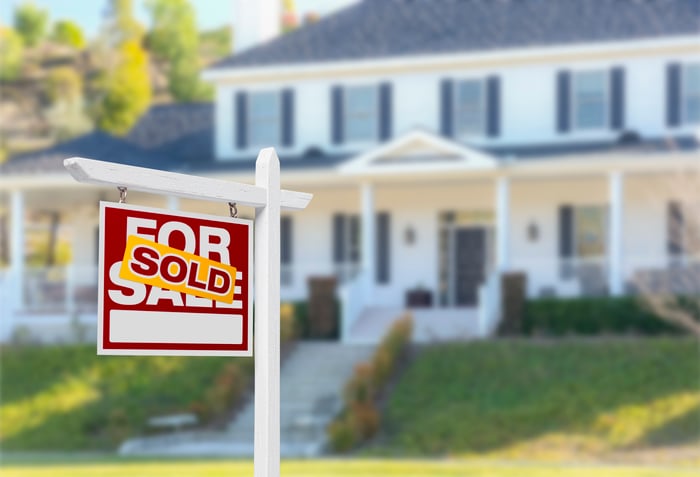Zillow (ZG -2.02%) (Z -2.27%) is now buying and selling homes directly in 21 markets around the country through its "iBuying" business, Zillow Offers. Last quarter, Zillow bought 2,291 homes, sold 1,211, and ended the quarter owning 2,822 homes it values at $879 million. Incredibly, this is a business that didn't own any homes only 18 months ago. The pace of expansion has been explosive due to the rapid rollout to new markets and increasing homeowner awareness. Management is expanding the business rapidly because it understands that being the biggest iBuyer could be an insurmountable competitive advantage.
iBuying is a scale game
Since Zillow Offers has been in business, management has found that homeowners tend to be quite price-sensitive to the company's offer price and service fee. According to founder and CEO Rich Barton, the number of homeowners who accept Zillow's offer and sell to the company increases "dramatically" with relatively small increases in offers.

Image Source: Getty Images.
On the company's third-quarter conference call, Barton talked about why scale is so important to Zillow Offers.
... we really do think scale in [Zillow Offers] matters. ... this is a pretty price-elastic business.
... every little bit more we're able to offer a homeowner for their house -- because we're running a more efficient operation, we have cheaper financing expenses, we are able to sell [and] market these homes cheaper than onesie-twosie or small folks -- every little bit that we are able to do actually dramatically increases the size of the business that we think we can ultimately run.
So I don't know if I'd call this a network effect. It's not really that. It's just a scale effect. There's a strong scale effect, we believe, in the Zillow Offers business. So we think this is an important strategic decision to actually have this be big, to make it get big.
Of course, any iBuyer could make homeowners higher offers and win market share for a while. That alone is not a sustainable strategy. The key in this business is to have a lower cost structure than others so that you can afford to offer homeowners higher offers than anyone else can. A lower cost structure is possible through economies of scale -- in other words, getting big and efficient so you can effectively pass your cost savings onto homeowners through higher offers.
How Zillow can pay more
Zillow has a big cost advantage right off the bat due to the massive amount of site traffic it already gets and can use for Zillow Offers; 196 million different people visit its sites and apps each month on average, and that figure is growing. In Zillow Offers markets, the company simply advertises the ability to request an offer on each home's Zillow page. Adding that functionality cost the company virtually nothing.
This represents a meaningful cost advantage over other iBuyers that have to advertise heavily to get people to come to their sites. Even with that advertising spending, their site traffic levels remain a tiny fraction of Zillow's. Another cost advantage is the fact that Zillow can essentially subsidize Zillow Offers with money from its increasingly profitable core business. Other iBuyers simply don't have that luxury. Other cost advantages in home renovations and selling costs could emerge over time as the company gains scale. Barton expects the company to get more efficient in every one of the Zillow Offers expenses.
Zillow faces intense competition from privately held Opendoor, which still leads the iBuying industry due to its multiyear head start. Opendoor says it has "
But Zillow Offers is catching up quickly and now operates in 17 of Opendoor's 21 markets, four other markets that Opendoor does not compete in, and will be launching in another five markets by the middle of next year. Privately held Offerpad meanwhile operates in only 12 markets despite launching in 2015. Redfin's RedfinNow operates in 10 markets and appears more cautious about expansion, having recently launched a partnership with Opendoor to refer Redfin users to Opendoor in markets where RedfinNow is not operating. Opendoor and Zillow Offers are the two iBuyers competing most aggressively, but it is possible Zillow could overtake Opendoor given its cost and funding advantages that are enabling a blistering growth pace.
Scale should drive an increasingly positive feedback loop
Since homeowners are price-sensitive, they will naturally sell to the highest bidder. As a result, the iBuyer that can make the highest offers should be able to buy more homes and gain more market share, which should allow for greater scale and efficiencies, which leads back to further ability to bid more than others for homes.
On the other hand, the iBuyers that come up short with their offers should lose market share and fall behind in scale and efficiencies, which should further exacerbate their inability to make the highest offers.
It is possible that iBuying could evolve toward winner-take-all dynamics over the long term. While Zillow had a late start in this business and is still playing catch-up to industry leader Opendoor, it does appear to be catching up quickly in its quest to, as Barton said, "be big" to "get big."





